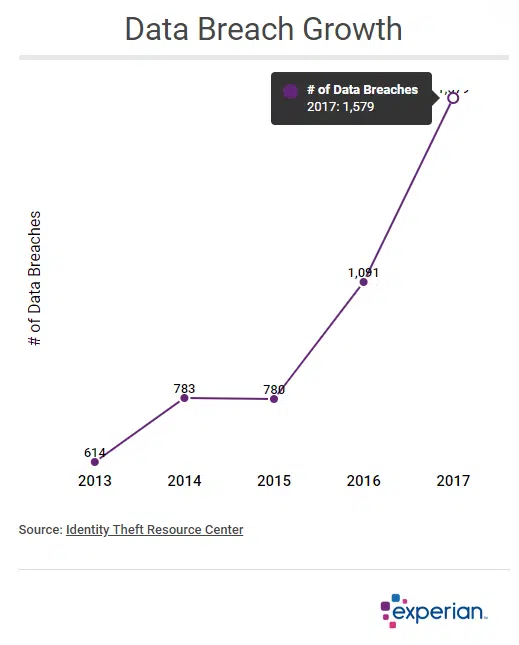The China Factor: Analyzing The Struggles Of BMW, Porsche, And Other Automakers

Table of Contents
Intense Domestic Competition
The Chinese automotive market is experiencing a dramatic shift, driven largely by the rise of domestic brands and their rapid technological advancements. This intense domestic competition presents a significant challenge for established foreign automakers like BMW and Porsche.
Rise of Chinese Auto Brands
The emergence of powerful Chinese auto brands such as BYD, NIO, and Xpeng is reshaping the competitive landscape. These companies possess several key advantages:
- Superior understanding of local consumer preferences: Chinese brands have an inherent understanding of local tastes, cultural nuances, and evolving consumer demands, allowing them to tailor their products and marketing more effectively.
- Aggressive marketing and pricing strategies: Domestic brands often employ aggressive marketing campaigns and competitive pricing strategies, making their vehicles more accessible to a broader range of consumers.
- Government support and incentives: The Chinese government actively supports the growth of domestic automakers through various subsidies, tax breaks, and supportive regulations.
For example, BYD's success with its electric vehicles, particularly the Han and Tang models, has significantly impacted the market share of established foreign brands. Their innovative battery technology and aggressive pricing have proven highly effective in attracting Chinese consumers.
Technological Advancements from Domestic Players
Chinese automakers are rapidly bridging the technological gap with their international counterparts, especially in the crucial areas of electric vehicles (EVs), autonomous driving, and connected car technologies. This rapid innovation is a major threat to foreign automakers who previously enjoyed a technological advantage.
- Rapid innovation in battery technology and charging infrastructure: China is investing heavily in battery technology and developing a robust nationwide charging network, giving its domestic automakers a significant edge in the EV market.
- Integration of advanced driver-assistance systems (ADAS): Chinese manufacturers are rapidly integrating advanced driver-assistance systems, such as lane keeping assist and adaptive cruise control, into their vehicles, making them increasingly competitive.
- Development of sophisticated infotainment and connected car features: Chinese automakers are incorporating cutting-edge infotainment systems and connected car features that appeal to tech-savvy Chinese consumers.
NIO, for example, stands out with its battery-swapping technology and advanced autonomous driving features, showcasing the technological prowess of domestic Chinese brands and the challenges it poses for established players.
Navigating Regulatory Hurdles and Trade Tensions
Operating in China presents a complex regulatory environment and significant geopolitical risks for foreign automakers.
Complex Regulatory Environment
Navigating China's regulatory landscape is a significant undertaking, requiring substantial investment and expertise. Foreign automakers face numerous challenges:
- Strict emission standards and fuel efficiency requirements: China has stringent emission regulations, forcing foreign automakers to invest heavily in developing compliant vehicles.
- Bureaucratic hurdles in obtaining licenses and approvals: The process of obtaining the necessary licenses and approvals to operate in China can be lengthy and complex.
- Data localization regulations: China's data localization policies require foreign companies to store user data within the country, adding complexity to data management and security.
The difficulty in complying with these regulations often leads to increased costs and delays for foreign companies entering or operating within the Chinese market.
Geopolitical Risks and Trade Wars
Trade tensions and geopolitical uncertainties between China and other nations create considerable instability for foreign automakers.
- Impact of tariffs and trade disputes on import costs: Tariffs and trade disputes can significantly increase the cost of importing vehicles and components into China, impacting profitability.
- Supply chain disruptions and logistical challenges: Geopolitical instability can disrupt supply chains and create logistical challenges for foreign automakers.
- Political instability and its effects on market sentiment: Political uncertainty can negatively impact consumer confidence and market demand.
Recent trade tensions between China and other countries have highlighted the vulnerability of foreign automakers to these geopolitical risks.
Adapting to Unique Consumer Preferences
Understanding and catering to the unique preferences of the Chinese consumer is critical for success in the market.
Understanding the Chinese Consumer
Chinese consumers have distinctive preferences that differ significantly from those in other markets:
- Emphasis on technology and digital features: Chinese consumers highly value advanced technology and digital features in their vehicles.
- Preference for larger vehicles and SUVs: SUVs and larger vehicles are particularly popular among Chinese consumers.
- Growing demand for electric and hybrid vehicles: There is a rapidly growing demand for electric and hybrid vehicles in China, driven by government policies and consumer preference.
This requires foreign automakers to thoroughly understand these trends to align their offerings accordingly.
Localized Marketing and Product Strategies
Foreign automakers must adapt their marketing and product strategies to resonate with Chinese consumers:
- Investing in localized marketing campaigns: Foreign automakers need to tailor their marketing messages to appeal to the specific cultural context and preferences of Chinese consumers.
- Developing vehicles tailored to Chinese consumer preferences: Designing vehicles that meet the specific needs and preferences of Chinese consumers is essential for success.
- Building strong relationships with local partners: Collaborating with local partners can provide foreign automakers with valuable insights into the market and facilitate market entry.
Those brands which have successfully localized their strategies and offerings have demonstrated significantly improved market performance compared to those who have not.
Conclusion
The China factor presents significant challenges for BMW, Porsche, and other foreign automakers. Intense domestic competition, regulatory hurdles, and the need to adapt to unique consumer preferences all contribute to the complexities of this crucial market. To succeed in China, foreign automakers must prioritize technological innovation, strategic partnerships, and a deep understanding of the local market. By effectively navigating "The China Factor," these companies can unlock the immense potential of the world's largest automotive market. Successfully addressing the challenges posed by the China factor is crucial for long-term growth and profitability in the global automotive landscape. Continue to learn about the intricacies of the China Factor and its ongoing impact on the automotive industry.

Featured Posts
-
 Red Sox Breakout Star An Under The Radar Players Unexpected Rise
Apr 28, 2025
Red Sox Breakout Star An Under The Radar Players Unexpected Rise
Apr 28, 2025 -
 Espns Moving Tribute To Departing Host Cassidy Hubbarth
Apr 28, 2025
Espns Moving Tribute To Departing Host Cassidy Hubbarth
Apr 28, 2025 -
 Late Game Heroics How Judge And Goldschmidt Saved The Yankees Series
Apr 28, 2025
Late Game Heroics How Judge And Goldschmidt Saved The Yankees Series
Apr 28, 2025 -
 T Mobile Penalty 16 Million For Three Years Of Data Breaches
Apr 28, 2025
T Mobile Penalty 16 Million For Three Years Of Data Breaches
Apr 28, 2025 -
 Yankees Aaron Judge And The 2025 Push Up Goal Symbolism And Speculation
Apr 28, 2025
Yankees Aaron Judge And The 2025 Push Up Goal Symbolism And Speculation
Apr 28, 2025
